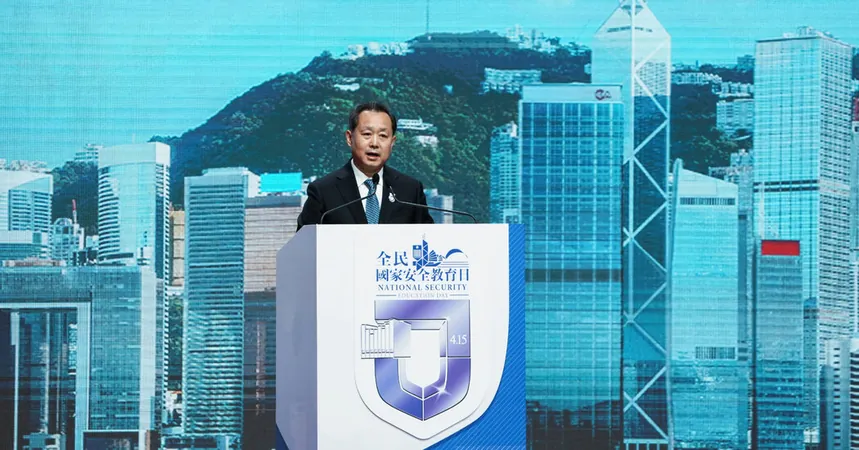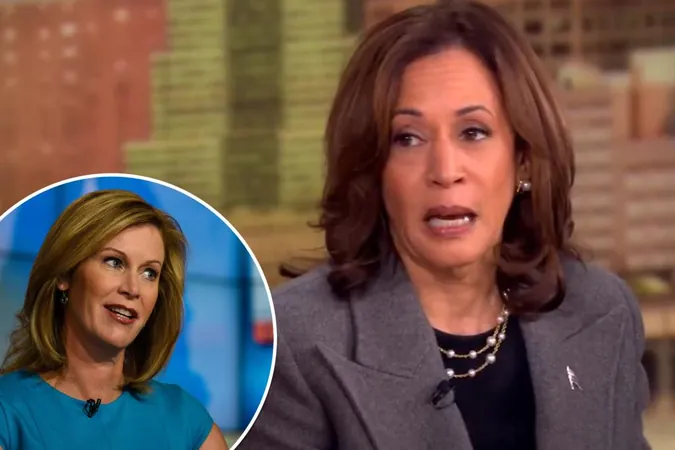
U.S. Targets Chinese and Hong Kong Officials with Sanctions for Repression of Activists
2025-04-01
Author: Ting
In a decisive action against China's escalating repression, the U.S. has announced sanctions against six high-ranking Chinese and Hong Kong officials. This move, a clear message from the new Trump administration, is aimed at addressing the transnational repression tactics employed against pro-democracy activists both in Hong Kong and within the United States.
According to a statement from the State Department, the individuals sanctioned have utilized Hong Kong's controversial national security laws to intimidate and silence 19 activists who were forced into exile, including a U.S. citizen and four other residents. Among those targeted is Dong Jingwei, who has been the top national security official in Hong Kong since 2023 and previously served as vice minister of state security, leading efforts against dissidents and foreign espionage.
Since the unrest ignited in 2019, Hong Kong authorities have cracked down harshly on dissent, jailing opposition lawmakers, activists, and journalists, showing a persistent disregard for human rights and civil liberties. The U.S. State Department's annual report criticized the ongoing application of broad national security laws, highlighting that as recently as December, the Hong Kong government had offered bounties for information leading to the arrests of dissidents living abroad.
Activists from Hong Kong residing in the U.S. have applauded this latest sanction. Frances Hui, a political asylum grantee and spokesperson for the Committee for Freedom in Hong Kong Foundation, stated, “It profoundly matters to see the U.S. leading in condemning the officials responsible for orchestrating these repressive actions; many of us have suffered intense pressure and threats.”
The Chinese embassy in Washington has denounced the sanctions as a “gross interference” in China's internal matters, arguing that the enforcement of national security laws is essential for restoring stability in Hong Kong following the pro-democracy protests of 2019.
Secretary of State Marco Rubio, a long-time critic of China's human rights practices, emphasized that these actions illustrate the Trump administration's commitment to accountability for those undermining freedoms in Hong Kong and targeting those overseas.
While the sanctions align with Rubio’s enduring stance against China’s violations, some analysts, including Willy Wo-Lap Lam from The Jamestown Foundation, suggest that President Trump has not prioritized human rights issues in the region. He noted that the administration has significantly reduced funding to organizations that amplify dissident voices, indicating a strategic move more aligned with geopolitical competition than a genuine commitment to human rights.
As the geopolitical tensions continue to rise, this development marks a critical moment in U.S.-China relations, signaling that the fight for democracy and human rights in Hong Kong remains a pivotal issue on the global stage. Will the U.S. sustain this momentum, or will other pressing agendas overshadow the plight of activists? Only time will tell.




 Brasil (PT)
Brasil (PT)
 Canada (EN)
Canada (EN)
 Chile (ES)
Chile (ES)
 Česko (CS)
Česko (CS)
 대한민국 (KO)
대한민국 (KO)
 España (ES)
España (ES)
 France (FR)
France (FR)
 Hong Kong (EN)
Hong Kong (EN)
 Italia (IT)
Italia (IT)
 日本 (JA)
日本 (JA)
 Magyarország (HU)
Magyarország (HU)
 Norge (NO)
Norge (NO)
 Polska (PL)
Polska (PL)
 Schweiz (DE)
Schweiz (DE)
 Singapore (EN)
Singapore (EN)
 Sverige (SV)
Sverige (SV)
 Suomi (FI)
Suomi (FI)
 Türkiye (TR)
Türkiye (TR)
 الإمارات العربية المتحدة (AR)
الإمارات العربية المتحدة (AR)